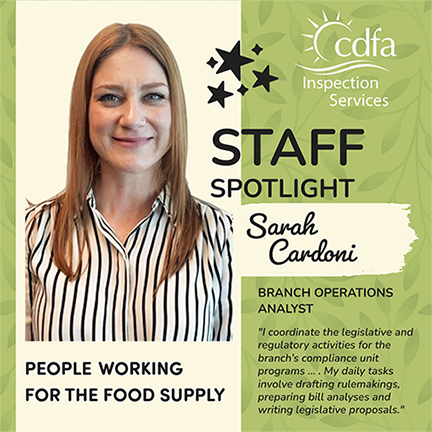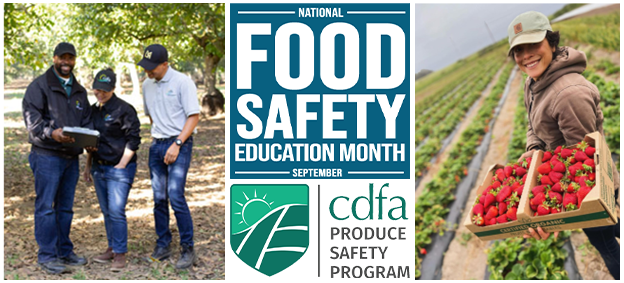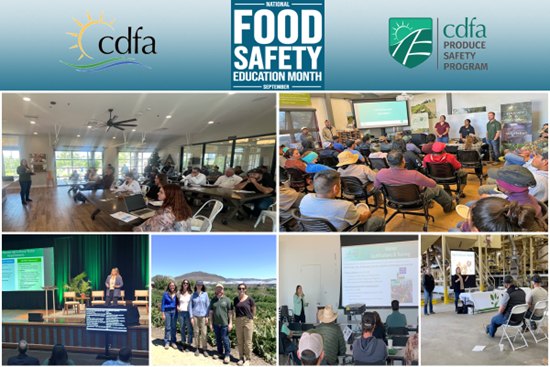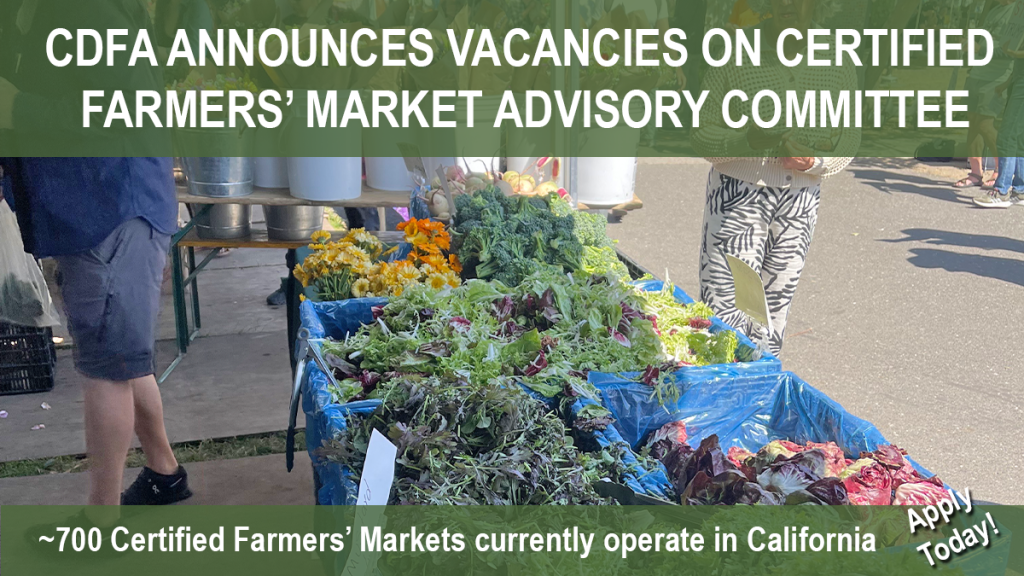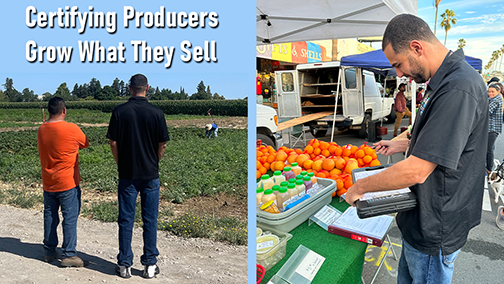CDFA’s Office of Farm to Fork (CDFA-F2F) is accepting proposals for the 2026 California Nutrition Incentive Program (CNIP) Expansion. This opportunity provides monetary incentives to match three initiatives – the Special Supplemental Nutrition Program for Women, Infants and Children (WIC), the WIC Farmers’ Market Nutrition Program (WIC FMNP), and the Senior Farmers’ Market Nutrition Program (SFMNP). Applications must be submitted by email to cafarmtofork@cdfa.ca.gov no later than 5 p.m. PT November 4, 2025.
CNIP provides monetary incentives to shoppers spending nutrition benefits on healthy, California-grown fresh fruits and vegetables. For every benefit dollar spent, CNIP provides shoppers an additional dollar that may be spent on fruits and vegetables up to a set limit.
CDFA is seeking project proposals from qualified entities to distribute CNIP incentives at Certified Farmers’ Markets, and/or provide support, outreach and technical assistance for benefit shoppers and market vendors utilizing electronic Farmers’ Market Cards. Projects that reach low-access areas and low-income populations, particularly communities where a large proportion of the population is eligible for nutrition benefits, will be prioritized. This is a competitive process.
Please visit the CNIP webpage to view the 2026 CNIP Expansion request for proposals (RFP) and to register for an informational webinar at 11 a.m. PT October 9. The RFP includes further information on the grant program and its implementation. The webinar is an opportunity for grant applicants to receive additional information and ask questions.
Funding for this grant cycle came from the California State Budget General Fund, passed by the California State Legislature and signed by Governor Gavin Newsom.
Click here to view this original CDFA news release.



